Which Adelaide companies are turning the tech hype into reality?
We’ve looked at the Adelaide tech firms doing cool things in AI, health and space, who are looking to take their businesses to the world, and beyond.
There’s been plenty of hype around technology businesses in South Australia recently - Lot Fourteen is a hive of activity bustling with entrepreneurs at various stages of the journey, the Australian Space Agency is up and running, and major businesses such as Amazon and MTX Group are putting down roots.
But as this list of fast-growing SA-based tech companies compiled by The Advertiser shows, the hype is real.
In areas such as artificial intelligence, satellite technology and health, local companies are making their mark on the local, and even extra-planetary stage.
Complexica
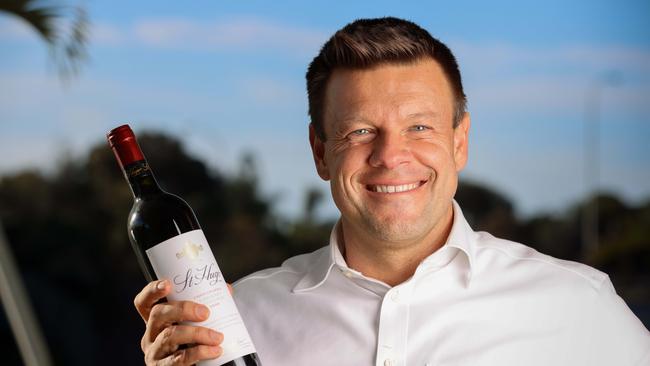
Helping some of the biggest brands across Australia and the globe make better decisions is a simple way to explain what Adelaide-based artificial intelligence firm Complexica does, but it also vastly undersells them.
It’s by no accident that the company has been able to bring on brands like Pfizer, Pernod Ricard and Metcash over the past seven years, with products such as Decision Cloud and Larry, the Digital Analyst helping Complexica’s customers navigate decision-making processes well beyond the capacity of human managers.
Managing director and co-founder Matthew Michalewicz explains that when making a business decision, ideally you aim to collect and examine all of the available data.
Unfortunately in a business with perhaps 5000 or more product lines, affected by vagaries such as the weather, cost inputs, consumer trends, and logistics, to name but a few factors, the process becomes too complex, and humans fall back on their instincts.
Complexica, backed by the 20 PhDs on its advisory panel and with co-founder and globally recognised AI-pioneer Zbigniew Michalewicz guiding technology development, allows its customers to optimise their processes, whether they be supply chains or sales funnels.
One of the larger projects to go live recently was their execution for Pernod Ricard, which Complexica has been working with for the past couple of years to help them optimise the winemaking process from end-to-end from vineyard through to bottling.
“This is something that has traditionally been done through manual processes, spreadsheets, planning boards, and disjointed software systems, and I’m not aware of any software project anywhere in the world that has successfully digitalised and optimised such a complex end-to-end process within a single system, Matthew said recently.
“Needless to say, that’s incredibly exciting and groundbreaking, and the project has also allowed Complexica to further its research into artificial intelligence algorithms for optimising complex, multi-component supply chains—something that’s applicable to most large manufacturers.’’
With the company running a software as a service and project-based revenue model, it is now looking to a sharemarket listing next year, with the current capital raising target in the realm of $25 million-$50 million.
“Looking into 2022, the listing of Complexica on the ASX would allow us to accelerate our organic growth in Australia, enter foreign markets earlier and on a stronger footing, and execute an M&A strategy to bolt on a few strategic acquisitions that would broaden our software footprint within some verticals we operate in,’’ Matthew Michalewicz said.
Mr Michalewicz says AI is dependent on having suitably skilled people to devise solutions for each customer, which provides a strong economic moat for companies such as Complexica, as their intellectual property or business concept cannot be easily replicated.
Complexica now employs about 70 staff across two Australian and one European office.
Which other Australian start-up/tech company impresses you and why?
“Looking at the Australian tech landscape, I’ve been most impressed by the Canva story over the past few years. Besides the incredible success they’ve achieved and continue to achieve, I admire the simplicity and elegance of what they offer, and the fact that they’ve addressed a real problem in the market that remained unsolved until they came along.”
Fleet Space Technologies
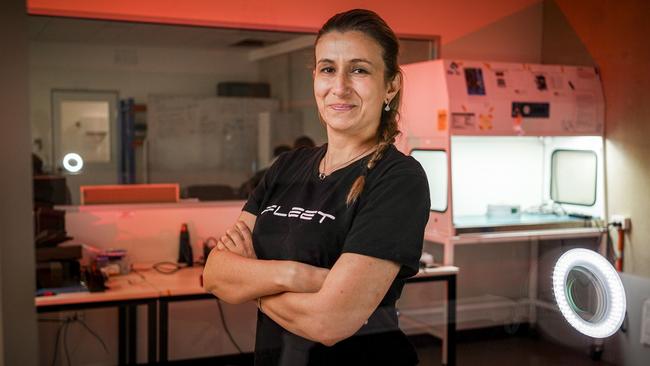
Satellites and the companies which build them aren’t what they used to be. Fleet, which has gone from three employees at launch (excuse the pun) in August 2015 to 31 now, raising $16m along the way, has the ambition to build “a global digital nervous system to power the next industrial revolution’’.
It’s heady stuff but with the dynamic Flavia Tata Nardini heading the ship, backed by co-founder and chief operating officer Matthew Pearson, the Beverley-based firm has already put five nanosatellites into low-earth orbit with another two to follow by the end of this year.
The company says it’s aiming for mass production by the end of this year, with the goal a constellation of 140 satellites in space by 2027.
Funding rounds of $5m and $11m in 2017 and 2019, backed by the likes of Blackbird Ventures, Horizons Ventures and Atlassian co-founder Mike Cannon-Brookes, helped fund the jump into space, and the company now has numerous customers including Snowy Hydro, CSIRO and BHP.
It is also collaborating on research projects with the likes of OZ Minerals and the University of Adelaide.
Fleet has applied for a $5 Million Federal Government Modern Manufacturing Initiative (MMI) grant which, if successful, would allow them to scale up to become a manufacturing hub, and quadruple staff numbers to more than 120.
“Space is no longer just for governments and multi-billion dollar satellites,’’ the company says.
“Space is open for business and we are making its technology accessible for everyone.’’
Which other Australian start-up/tech company impresses you and why?
Flavia, CEO:
“I absolutely admire Gilmour Space and their aim to be the first Australian commercial launch company. They are scaling at an incredible rate and creating pathways to meet local demand for the Australian space industry, through providing affordable and reliable transportation for locally built satellites and keeping our country in the space race. To have an Australian-built payload in an Australian-built satellite, on an Australian-built rocket is just so exciting.
Matthew Pearson COO:
“Apart from my other start-up Airspeeder, I can’t ignore Canva and the success of another non-Silicon Valley tech company that has blitzed it operating here from Australia. An innovator in her field and the latest start-up unicorn from Australia, I admire Perkins and what she has founded with minimal staff in an isolated part of the world.”
Myriota
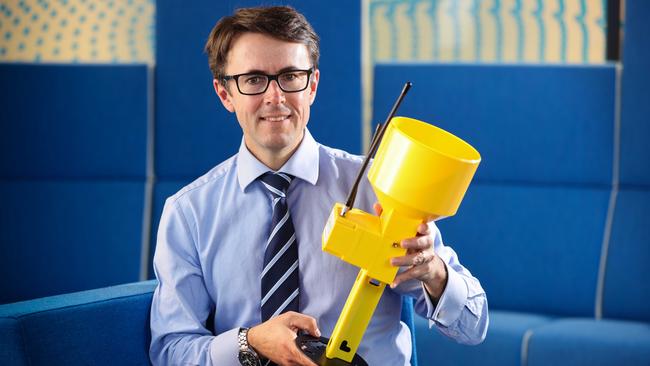
Myriota’s journey from a university spin-out to a growth business has been stellar with the business having raised more than $50m from local and international investors since 2015.
Japanese giants-backed InterValley Ventures fund is among the latest investors attracted to the business, offering advanced satellite communications for remote and urban internet of things (IoT) devices avoiding the need to use cellular networks.
The fund is led by former Virgin Entertainment Group CEO Simon Wright, and is backed by Japanese investment bank and securities firm Mizuho Securities and large private group Daiwa House Industry Pension Fund.
“All our investors are strategic partners as we grow,” Myriota co-founder Dr Alex Grant said.
“Everyone that we have formed a relationship with has been because we see an opportunity.
“Access to a high-tech sensors and electronics market is a good fit for our business.”
Other investors in Myriota so far include Boeing Horizon-X, Right Click Capital, Singtel Innov8, superannuation fund Hostplus and the CSIRO’s Main Sequence Ventures.
Former prime minister Malcolm Turnbull is also an investor.
Mr Grant said Myriota had a steady stream of customers across traditional asset-rich sectors like agribusiness and mining.
“By the end of the year, I think we will have almost a new product each week on average,” he said.
For Myriota, which employs 50 staff, the next 12 months will focus on growing in the US and Canadian markets.
He said Australia and SA had “some way to go” in terms of general infrastructure support for start-ups, but initiatives like the establishment of Lot Fourteen, the creation of a space agency and attracting high-calibre talent were positive developments.
“They provide good oxygen for growth,” Mr Grant said.
One to watch for and why: Sensors business Ping, surveillance business Selentium Defence and space tech company Inovor are exciting because of their unique capabilities and products.
Lumary
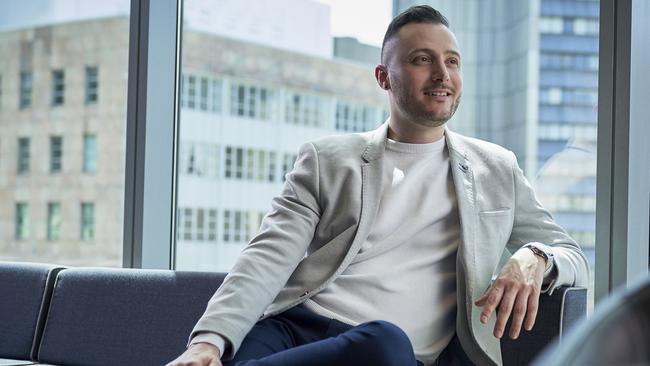
Freshly cashed-up Adelaide software business Lumary has a $17m growth kitty, a strategic partner in global giant Salesforce and a vision to prove its technology in the US market.
Lumary says it will launch an evolved version of the software management platform it developed for Australia’s complex National Disability Insurance Scheme for the US market by the end of the year.
“It will be fundamentally a specialised offering for behavioural health services providers, which combines our platform’s capability and our experience in a niche healthcare setting,” co-founder Joseph Mercorella said.
“We know there is a huge gap and together with Salesforce’s platform capability and partnerships, I think we will be offering something unique and much-needed in the market.”
Mr Mercorella and co-founder Matthew English were long-time colleagues working in the disability services space before they identified an opportunity to be a part of the National Insurance Disability Scheme, which has been fully operational since last year.
Lumary was born as Enrite Care in 2017 with a goal to help simplify the back-end software needs of the NDIS.
Lumary integrates with a number of other software products like Xero, MYOB, Pendula, Formstack, Netsuite and others to provide a single workflow platform.
“We are a sum of integrated applications,” Mr Mercorella said.
“There is a lot of wastage in technology, so we want to be ambassadors of repurposing (existing) technology to suit the needs of customers.”
The company, which has 200 customers, processes more than $2.5bn in NDIS funding for more than 200,000 users.
Employing more than 100 staff, the business is targeting $20m in revenues this financial year.
Including its $17m capital raising in March, the business has so far attracted support from OneVentures, Salesforce Ventures, Equity Venture Partners and the SA government through the SA Venture Capital Fund.
One to watch for and why: Dr Silvia Pfeiffer’s NSW-based telehealth business Coviu for creating something to fill a huge gap in healthcare systems, especially during a pandemic.
Teamgage
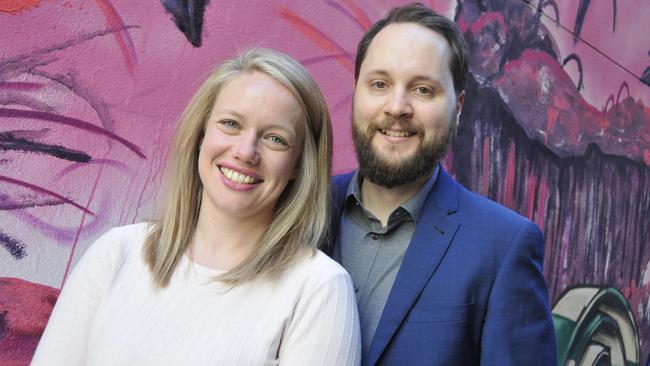
Teamgage’s 20-second, regular check-in with teams became a critical need for some major Australian businesses during the pandemic-forced lockdowns last year.
As they grappled with the challenges of dispersed staff working from home, Teamgage’s software check-ins, available as often as possible, ensured businesses had an ongoing connection to sustain workforce morale through unprecedented challenges.
As demand for its product grew and so did investor interest, leading to its first external investment.
Melbourne angel investors Matt and April Allen, founders of Tractor Ventures, invested in the already-profitable business last month.
When Noelle and Ben started the software business in 2016, the goal was simply to build great workplaces by enabling a sustained oversight of team engagement and improvement for all stakeholders.
The team has grown to 20 on the back of its biggest influx of demand last year with its client list now including the UK Government, Federal Government, NSW Government, Westpac, Allianz, DXC Technology, SA Water, Microsoft and Santos.
“It’s been awesome to join the Tractor Ventures family, and beyond the capital, it’s about having people like Matt & April Allen supporting us, offering their experience & insight,” Mr Smit said.
“While we don’t need to raise more funding, the investment late last year enabled us to hire for growth, and do it faster than we would have otherwise.
“We expanded our sales and marketing teams and hired senior operators like Ben Colley (chief-of-staff) and Steve Karamannis (chief engineering), both of whom have recently returned to Adelaide, and bring a years of experience in scaling technology companies.”
Teamgage will invest in growing its presence and customers outside Australia with the support of a $350,000 grant from the SA research, commercialisation and start-up fund.
One to watch for and why: Jindou Lee’s Adelaide and US real-time property management business HappyCo; it’s a quiet achiever, but the global delivery of realty services convenience is worth applauding.





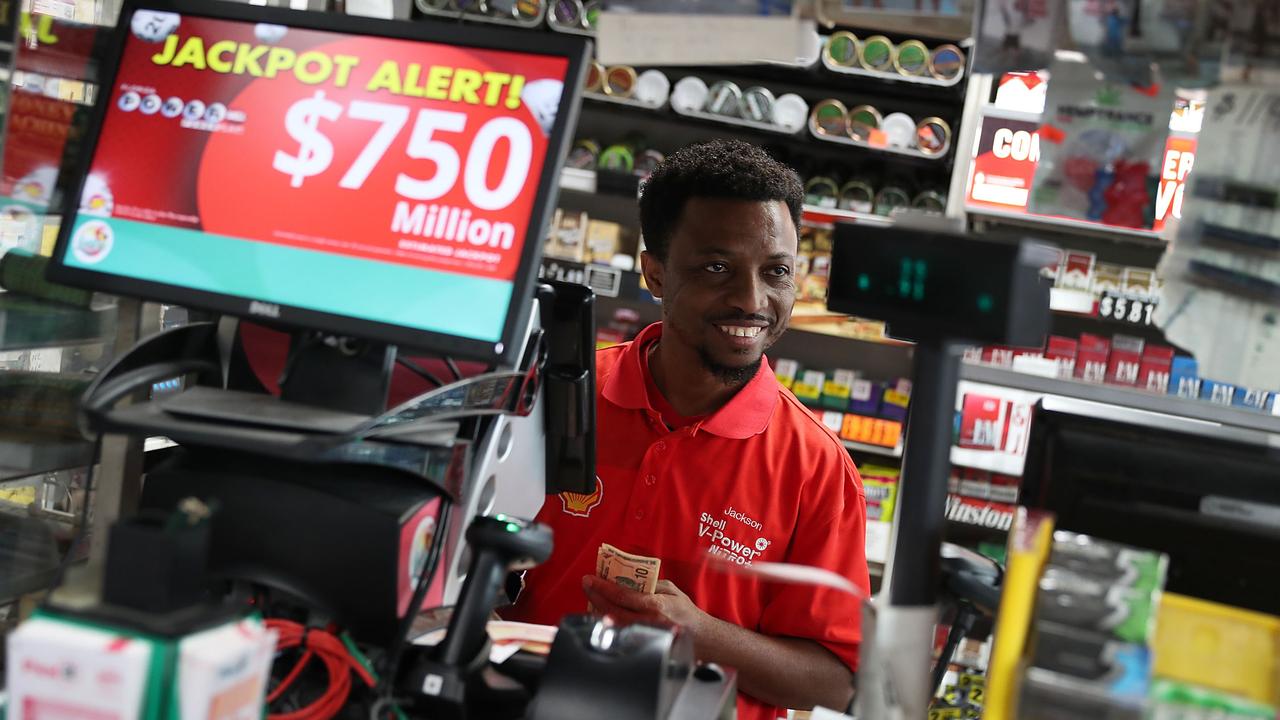
To join the conversation, please log in. Don't have an account? Register
Join the conversation, you are commenting as Logout